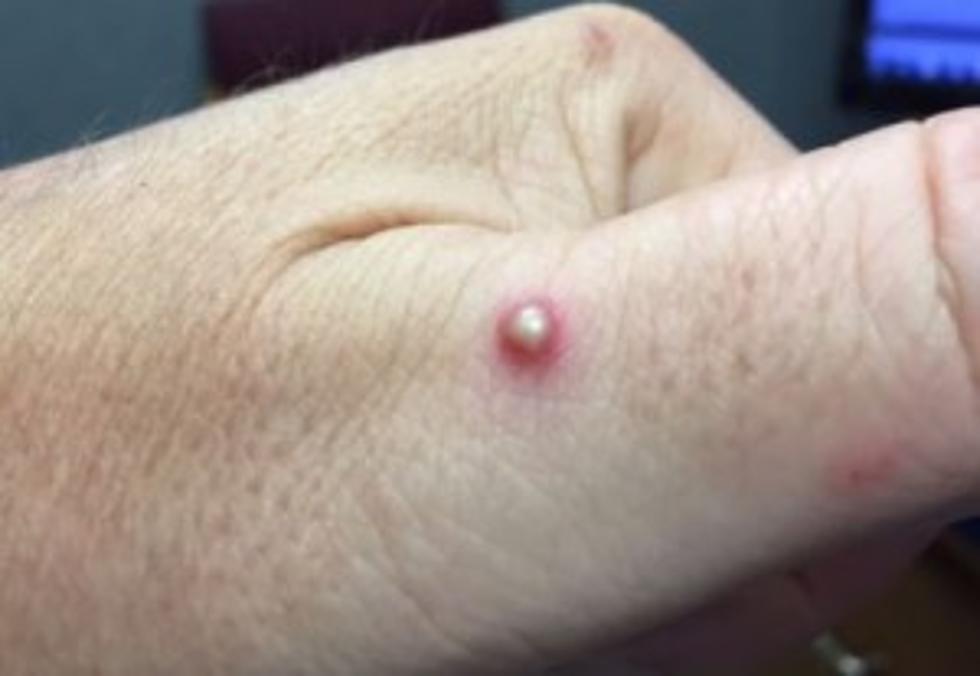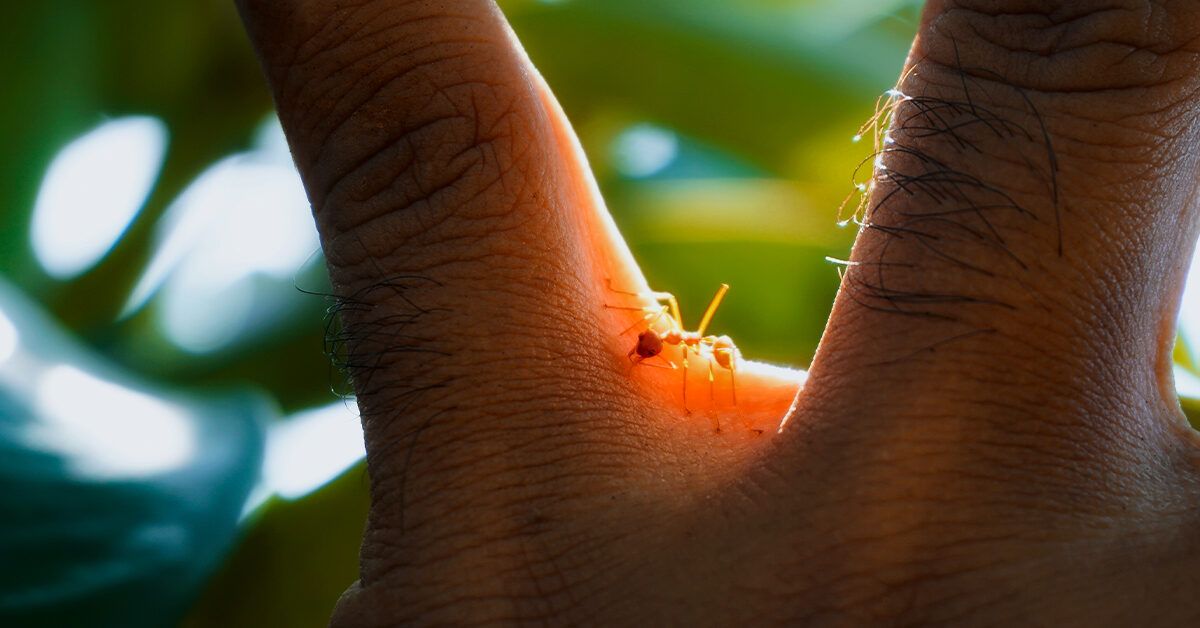You should not pop ant bite blisters, as it may lead to infection. Allowing them to heal naturally is the safest approach.
Dealing with an ant bite can be a surprisingly painful experience. The immediate reaction for many is to tend to the wound in whatever way feels most relieving, including the temptation to pop any resulting blisters. Despite this instinct, experts recommend against popping these blisters to prevent introducing bacteria to the wound.
The skin’s integrity is its best defense against infection, and when disrupted, it becomes an open door for germs. Instead, appropriate first aid measures promote healing and can alleviate the discomfort without compromising the skin’s barrier. The best response is to clean the area with mild soap and water, apply a cold compress to soothe inflammation, and use an over-the-counter antihistamine or hydrocortisone cream if itching persists. Patience and proper care typically lead to uneventful healing, keeping you safe from complications.

Credit: www.wikihow.com
Ant Bites And Your Skin
Picture a sunny day, a perfect picnic, and suddenly, an ant bite disrupts your bliss. Your skin is your shield, but ant bites can cause blisters that are tempting to pop. Should you give in or resist the urge? Understanding your skin’s reaction to these tiny warriors is crucial for proper care.
Typical Reactions to Ant BitesTypical Reactions To Ant Bites
Ant bites often lead to a series of reactions. Knowing what’s normal helps you care for your skin effectively. Key responses include:
- Redness: A red spot appears at the bite site.
- Swelling: The area around the bite may puff up.
- Itchiness: An intense urge to scratch often follows.
- Pain: Some ant bites can be surprisingly painful.
- Blister Formation: In some individuals, a blister fills with fluid.
Identifying The Blister Stage
Blisters from ant bites signify your skin’s battle with insect venom. These blisters appear as:
- Small bubbles on the skin’s surface filled with clear fluid.
- White or translucent and may seem puffy to the touch.
- Often surrounded by an area of red and swollen skin.
Never pop these blisters. Doing so could introduce bacteria and lead to infection. Instead, clean the area gently with soap and water. Apply a sterile dressing to protect it as it heals.
The Risks Of Popping Blisters
Ant bites often leave us with a blister. It’s tempting to pop them. But should we? No. Popping can cause more harm than good. It’s important to understand the risks.
Infection Concerns
Our skin is a protective shield. When we pop a blister, that shield breaks. This invites germs. Your blister can turn into an infected wound.
Avoid touching the blister to keep it germ-free. If it accidentally pops, clean the area immediately. Use soap and water. Then, put on an antibiotic ointment and a clean bandage.
Delayed Healing Process
Intact blisters heal better. They have fluid. This fluid cushions the wound. It aids recovery.
When you pop a blister, you lose this protective fluid. Your skin now has to work harder to heal.
Keep your hands off. Let the blister heal on its own. It’s the safer route.
Proper Care For Ant Bite Blisters
Got an ant bite with a blister? Knowing the right steps can prevent infection. Let’s learn how to care for ant bite blisters safely. Avoid popping them; keep them clean instead.
Initial Steps To Take
- Clean the area with soap and water.
- Gently pat dry – don’t rub!
- Apply a sterile bandage to protect the blister.
- Avoid breaking the blister to curb infection risk.
- Elevate the affected area to reduce swelling.
Natural Remedies To Soothe Pain And Itching
Natural solutions can calm your skin without harsh chemicals. Here are home-friendly options:
| Remedy | Instructions |
|---|---|
| Aloe Vera | Apply the gel on the blister; its cooling effect soothes. |
| Honey | Spread a thin layer over the bite for natural healing. |
| Cold Compress | Wrap ice in a cloth; apply to the area for 10 minutes. |
| Baking Soda Paste | Mix with water, dab on, and rinse after a few minutes. |
Remember, gentle care keeps ant bite blisters from getting worse. Stick to these steps and home remedies for relief. This way, your skin can heal quickly and safely.

Credit: 973thedawg.com
When To Seek Medical Attention
Dealing with ant bites can be irritating and sometimes painful. While it might be tempting to pop any blisters that form, knowing when this requires medical attention is crucial. An increased risk of infection might occur if not treated properly. It’s better to leave the blisters intact. But, certain signs could signal more significant issues. Here’s what you need to watch for.
Signs Of Allergic Reactions
If you notice any of these symptoms after an ant bite, it’s time to get urgent care:
- Swelling that goes beyond the bite area.
- Difficulty breathing or a feeling of tightness in the chest.
- Hives or a rash spreading on the body.
- Dizziness or a sudden drop in blood pressure.
Symptoms Indicating Infection
A popped blister can become a gateway for germs. Watch out for these signs of infection:
- Redness and warmth around the bite, spreading outward.
- Pus or a bad smell coming from the bite.
- Increased pain, throbbing, or tenderness.
- Fever or chills following the bite incident.
Remember, hands off those blisters! Seek a professional if any concerning symptoms appear. They will guide you on the safest steps for healing.
Preventing Ant Bites In The Future
We’ve all felt the sharp sting of an ant bite. The small blister it leaves behind is a nasty reminder. Knowing how to avoid these bites is key. This section will guide you on keeping those pesky ants at bay.
Protective Measures While Outdoors
Staying bite-free means staying prepared. Here are some top tips to keep ants away:
- Wear long pants and sleeves when heading into grassy areas. It puts a layer between you and the ants.
- Use insect repellent on your skin. It fends off ants and other biters.
- Steer clear of ant trails and nests. These are danger zones you should avoid.
- Keep your food sealed and clean up quickly. Ants love leftovers!
Efficient Ant Control Strategies
Keep ants from turning your home into their playground with these strategies:
| Strategy | Method |
|---|---|
| Seal Entrances | Block tiny holes, cracks, and crevices in your home to stop ants from entering. |
| Destroy Nests | Use bait or non-toxic treatments to target the source of the ant problem. |
| Keep Clean | Regularly vacuum and dispose of garbage to remove food sources. |
| Outdoor Maintenance | Trim plants and manage debris near your home to reduce ant-harboring spots. |

Credit: www.texasmonthly.com
Frequently Asked Questions Of Are You Supposed To Pop Ant Bite Blisters
How Do You Get Rid Of Ant Bite Blisters?
Clean the area with soap and water. Apply a cold compress to reduce swelling. Avoid scratching to prevent infection. Use over-the-counter antihistamines or creams if needed. If symptoms worsen, consult a doctor.
Should You Pop A Blister From An Ant Bite?
No, do not pop a blister from an ant bite. Popping can lead to infection. Let it heal naturally and keep the area clean and protected.
Should You Squeeze The Pus Out Of An Ant Bite?
No, you should not squeeze the pus out of an ant bite. Doing so can increase the risk of infection and delay healing.
Why Do My Ant Bites Look Like Pimples?
Ant bites can resemble pimples due to your body’s histamine response, which causes swelling and redness at the bite site. This inflammatory reaction creates pimple-like bumps.
Conclusion
To wrap up, resist the urge to pop ant bite blisters. Keep the area clean and seek medical attention if needed. It’s essential to monitor for signs of infection and to use soothing remedies to ease discomfort. Remember, proper care prevents further complications and promotes quicker healing.
Stay safe and informed about treating ant bites effectively.

I’m MD Tanvir, and I bring years of expertise gained from working closely with pest control companies to the forefront. My journey in the industry has inspired me to launch Bug Battler, a platform aimed at equipping people with the know-how to combat pests autonomously. Through Bug Battler, I aim to empower individuals with practical insights to tackle pest infestations effectively.

